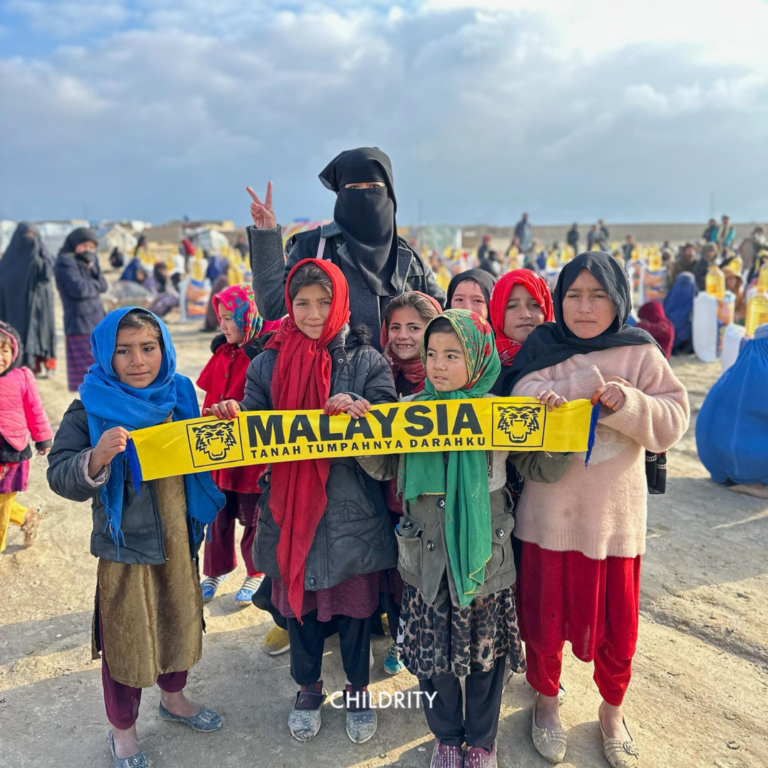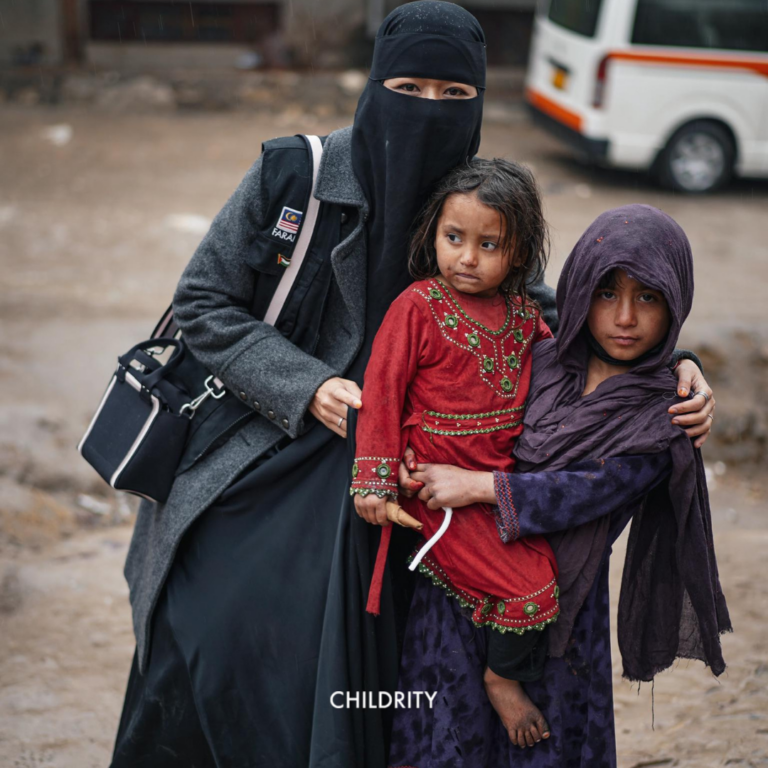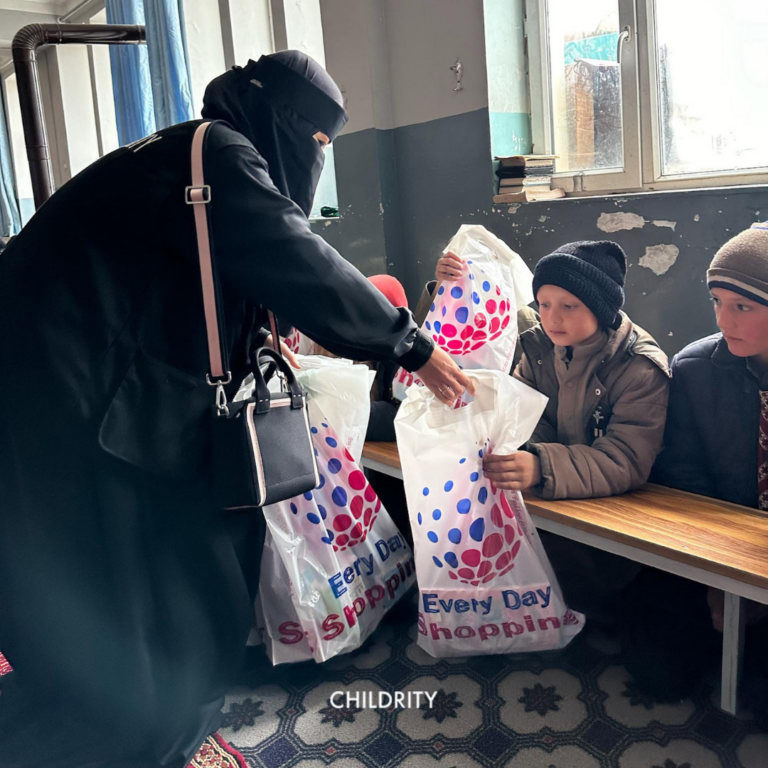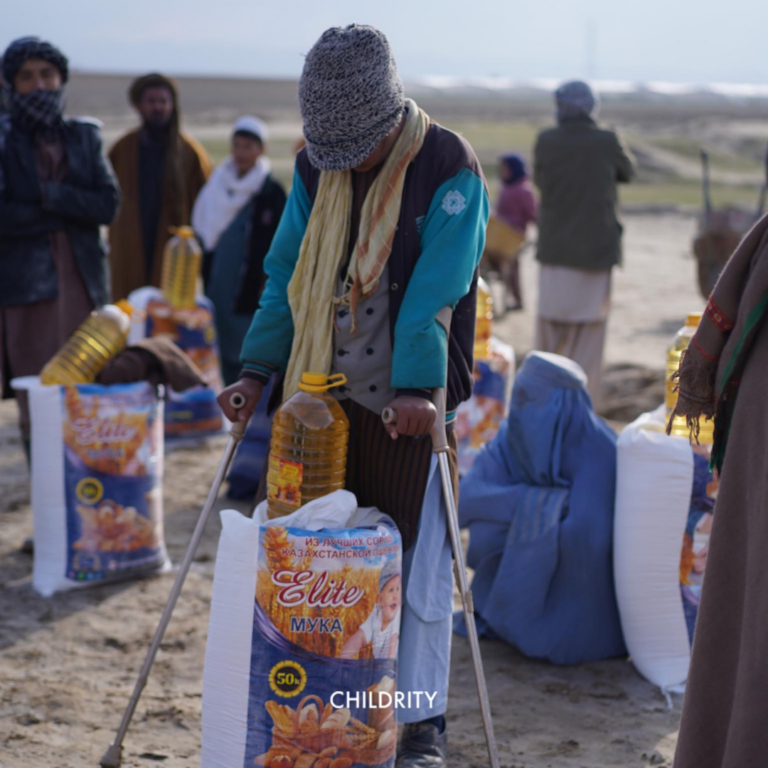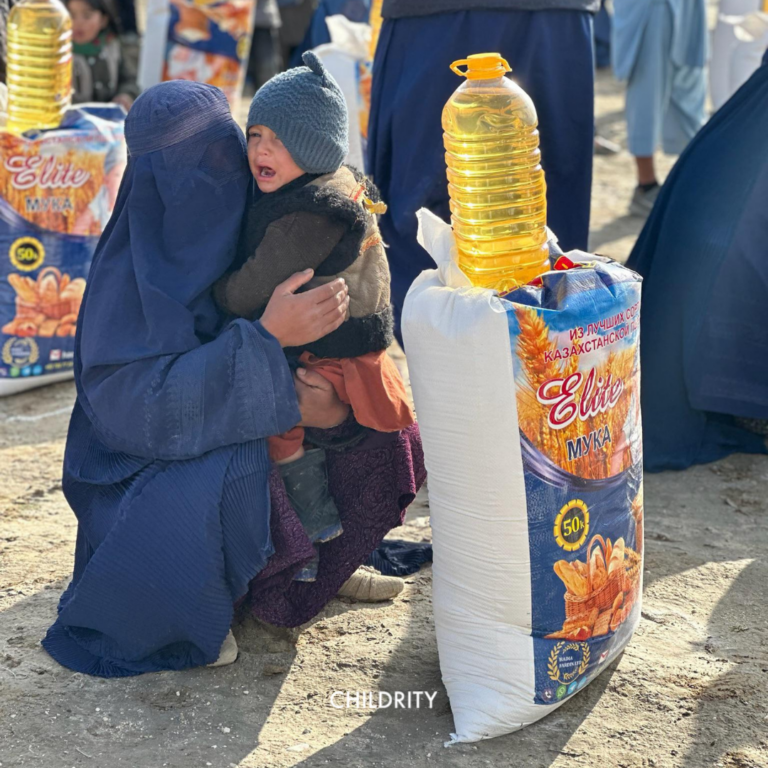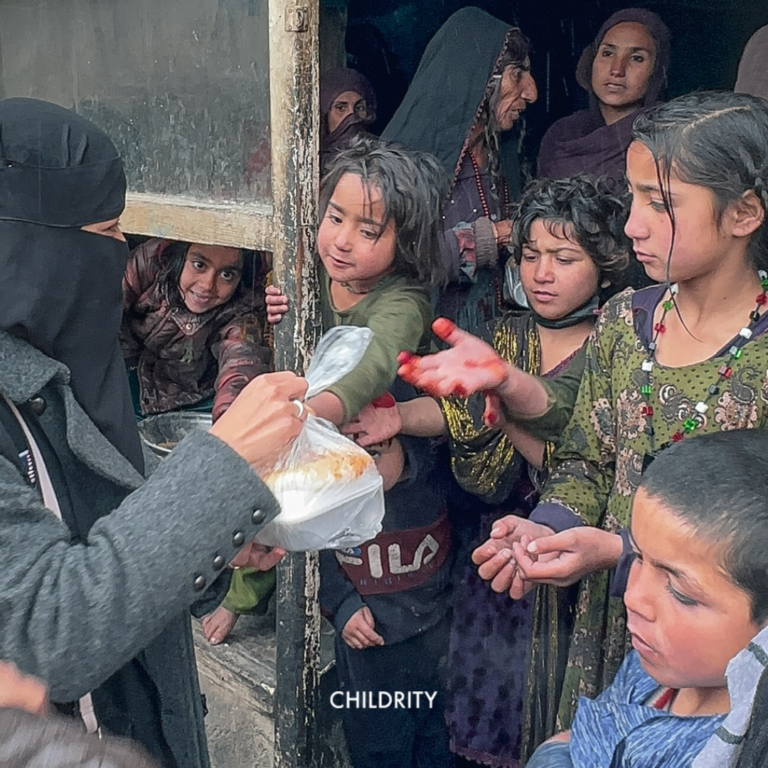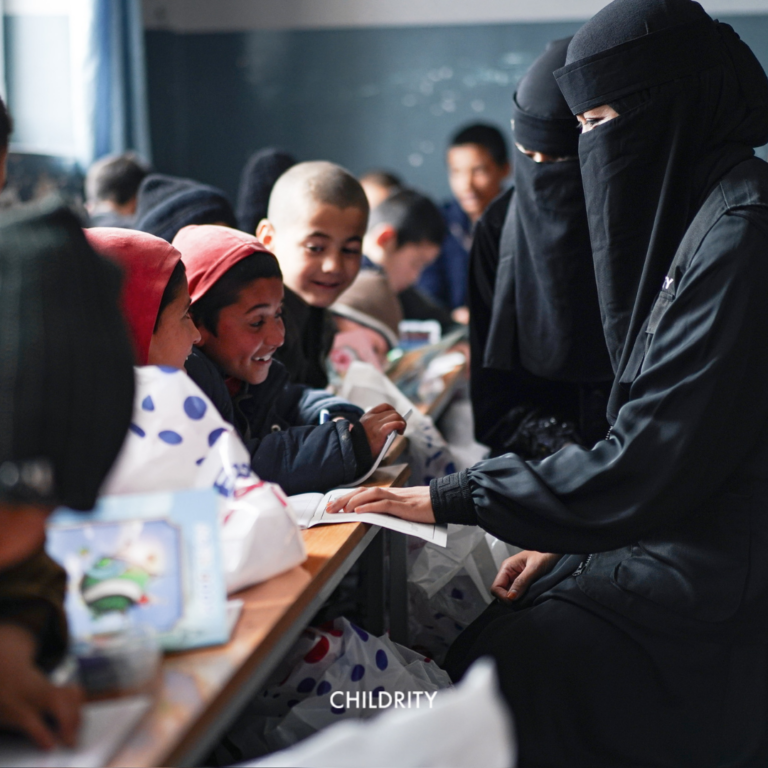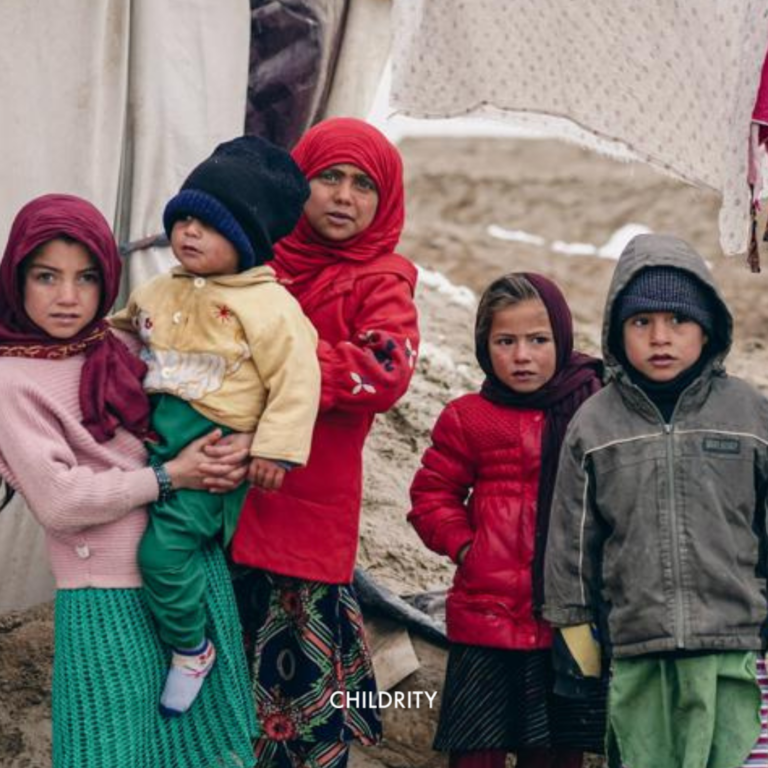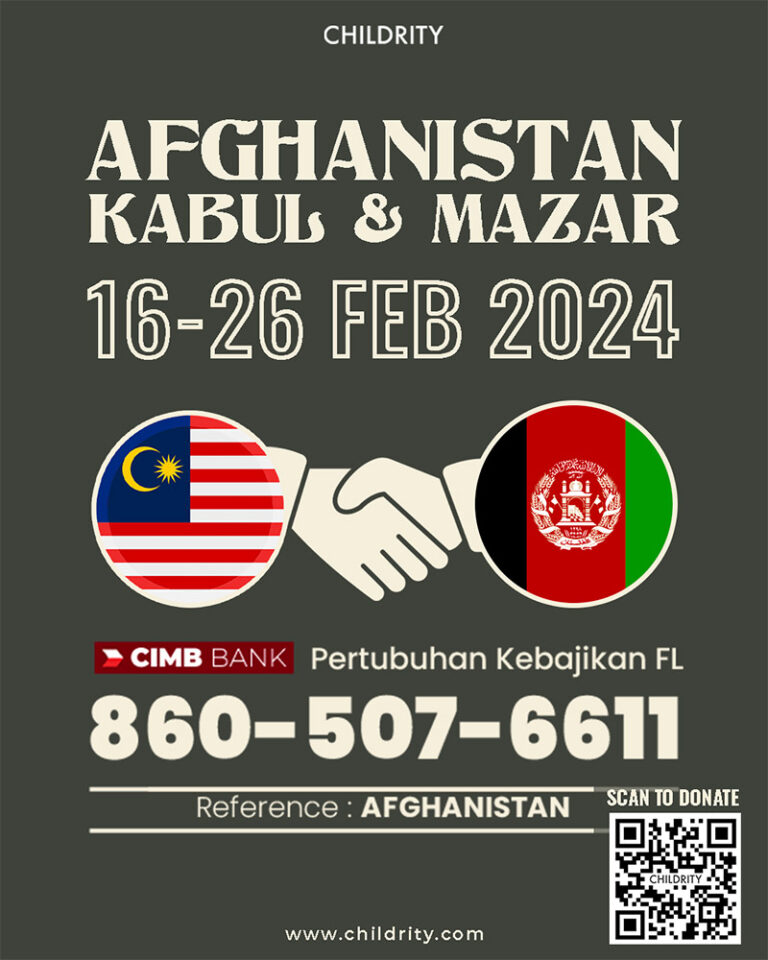AFGHANISTAN MISSION – KABUL & MAZAR, AFGHANISTAN

The Afghanistan Mission spanned from February 16th to February 26th, 2024 aimed to gain insights into Afghanistan’s vulnerabilities and identify potential areas for sustainable projects.
- We visited Kam Air central kitchen on 18th February to observe the preparation and packaging of 500 hot meals. The first 250 packs were distributed in the Kabul area, specifically to targeted individuals in Panj Sat Famili housing and to those in need on the streets – garbage collectors, homeless individuals. Next, we distributed the remaining 250 packs of hot meals to targeted individuals in Dasht barchi area and to those in need on the streets around Kabul City.
- We also visited 6 families during the distribution and donated a total of 11,000 Afghani as local support allocation – 3,000 Afghani to a lady who walks one hour daily to her bakery shop, 2,000 Afghani to a lady with a health condition who needs hospital treatments, 1,000 Afghani each to 3 mothers whose husband is garbage collector and 3,000 Afghani to an old man who was diagnosed with a stroke.
- We prepared gifts for 90 orphanages in Khalid ibn Walid Project area, funded by a Turkish entity. Each pack consists of: a notebook, pen, marker set, biscuits, juice, and socks. Additionally, 12 footballs were purchased to engage the children in playful activities. 150 Afghani were distributed to each of the children as well.
- We distributed 105 packs of food parcels to families in the suburb of Mazar in an area called Project Hamdard, where people are living in underground tents. Another 5 packs of food parcels were distributed to poor individuals living around Mazar City. Each food parcel consisted of 5 liters of cooking oil and 50 kilograms of flour.
- We are raising funds for 2 sustainable projects in Mazar – water pumps and basic houses. We have identified potential areas for installing 2 units water pumps, to provide clean and safe water to locations with limited access to underground/pipe water. The initial plan was to buy 15 basic container houses for 105 families who live in vulnerable conditions – underground tents made from mud and used cloths.
INDIVIDUALS BENEFITED
0
CHILDREN SUPPORTED
0
0
0
